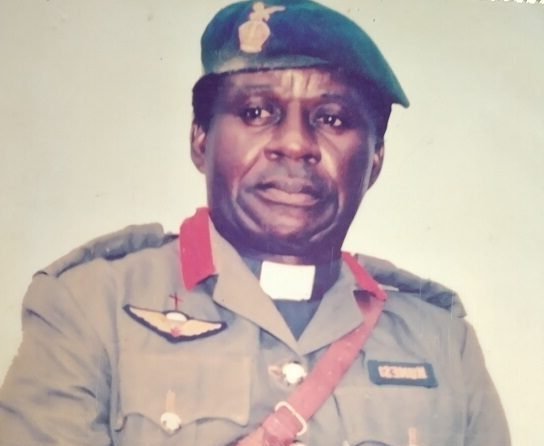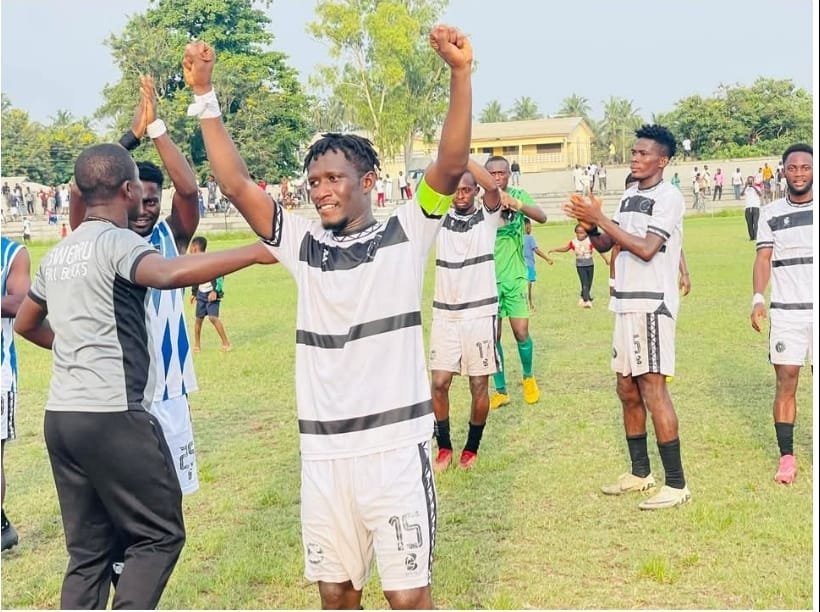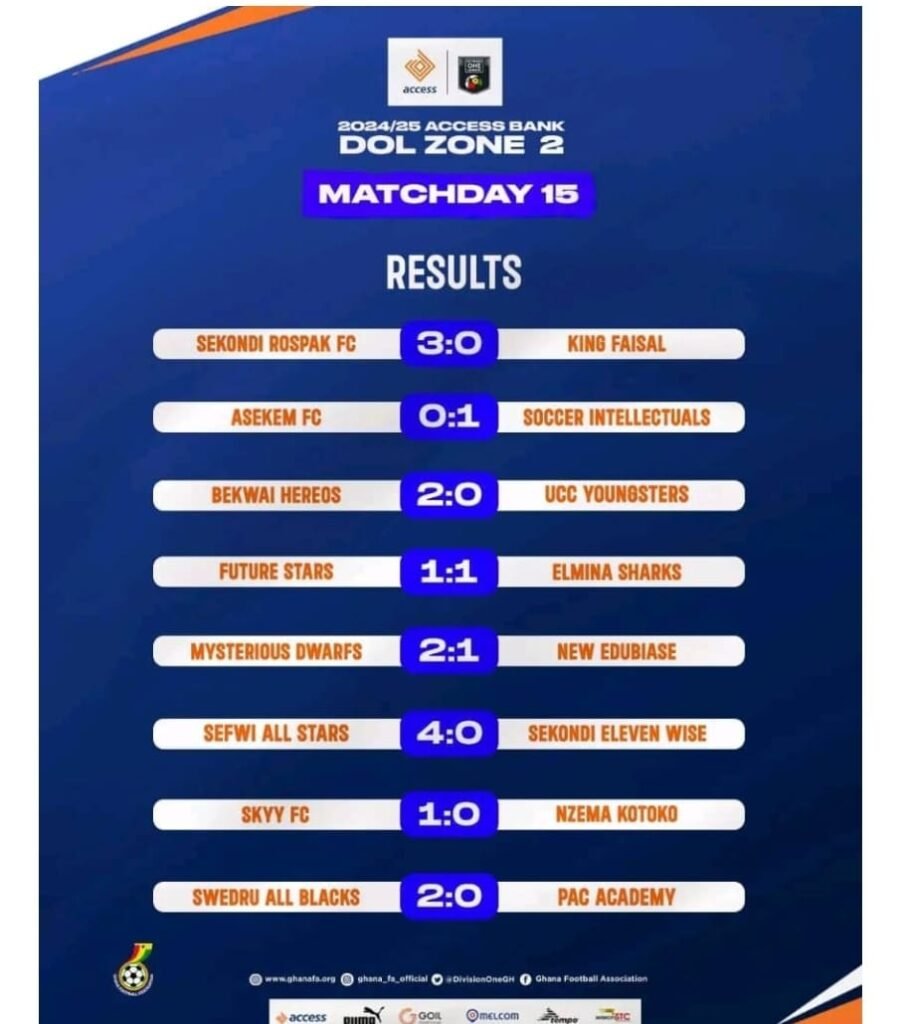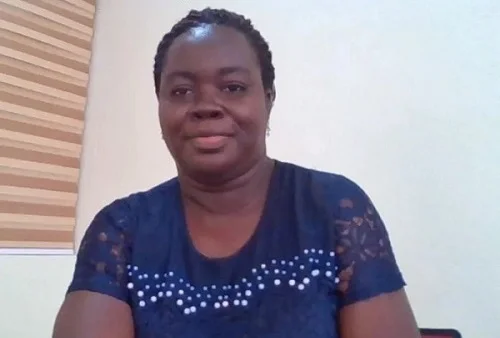Hot!
Other side of priest who prayed for Gen Acheampong before execution

Rev Fr Col Matthias Dismas Kwame Kumesi (rtd), the priest who prayed for General I.K. Acheampong, a former military head of state, before his execution following the June 4, 1979 uprising led by JJ Rawlings, has spoken about his other activities in the Ghana Armed Forces (GAF).
He says, for instance, that he played a pioneering role that requires a determined character to surmount the challenges involved.
Hecan aptly be described as an extraordinary Catholic Priest who has broken uncharted grounds in the GAF for others to emulate..
He was the first chaplain of the GAF to be granted Presidential Commissioning into this prestigious military institution.
Not content with this achievement, he is on record as the first Chaplain of the GAF to train as a parachutist to rub shoulders with the officers and men who belong to this elite unit of the military.
In an interview with The Spectator at Nkwanta in the Oti Region recently, he said his batch was trained by Canadian Military Officers at the Ghana Military Academy and Training Schools (GMATS), Teshie, and his intake was the last batch of officers to be commissioned in December 1965 by Dr Kwame Nkrumah, Ghana’s first President, before his overthrow in March 1966.
He explained that chaplains who served in the GAF before him had no formal military training but were only given the military uniform to enable them to perform their pastoral duties.
The former Chaplain-General,who was later designated as the Director of Religious Affairs of the GAF, said after his commissioning, his first posting was to the 6th Battalion of Infantry (6BN) in Takoradi, which was under the Command of then Lt Col Ignatius Kutu Acheampong,, who became a General before he was executed following the June 4, 1979 Revolution.
He said after he had been commissioned into the GAF, he resolved that he would avail himself of all military training programmes and exercises to broaden his knowledge.
Therefore, when the opportunity came in 1971 and he was posted to the Airborne Force in Tamale as the chaplain, he utilised it (opportunity) to train as a parachutist, adding that though the training was difficult from the beginning and many thought he could not endure it because he was a chaplain, he managed to end it successfully.
Rev FrKumesi disclosed that in 1973, when the Rev FrMajor JamesOwusu, the Senior Catholic Chaplain, was appointed the Catholic Bishop of Kumasi Diocese, he was transferred to Accra to replace him.
The former Chaplain-General, whose tenure in office spanned from October 1, 1981 to November 15, 1988 and spent a total of 24 years of meritorious service in the military, said one of his greatest wishes as the Chaplain-General was to have a commissioned officer as the Imam, and he was elated when this wish eventually materialised.
Traumatic Experiences
Recounting some experiences in the military,Col Kumesi said when he was the Chaplain at 6BN, Takoradi, he found Gen Acheampong as a leader who was approachable but very firm.
“I could remember after Gen Joseph Arthur Ankrah’s coup, he called all the officers under his Command into his office while he was waiting for instructions from Accra,” he recollected.
He said some of the officers were later picked up for comments they made in connection with the coup while the officers waited in the Commanding Officer’s Office, inTakoradi.
“Some days after, l was called by the military authorities to give them details about the conversations of those officers who were picked, while we waited in the CO’s office. I told them as a Catholic priest l could not testify against anybody, so l was placed under close arrest three months for disobeying lawful command,” he said.
According to him, after three months, he was given an open arrest for nine months, which meant he could not move out of Accra. He added that it was during this period that some of the Catholic Bishops of Ghana visited him and assured him that they were solidly behind him.
After the ninth month, a military trial was arranged for him and his punishment was delay in his promotion.
From Raymond Kyekye–Nkwanta
Hot!
Swedru All Blacks back to winning ways, Roshan humble King Faisal

Sekondi Rospak FC made it eight wins in eight successive home games after three second-half goals from John Amoah, Joseph Ntow and Stephen Anthony Kofi. John Amoah opened the scoring in the 55th minute after a barren first half. Joseph Ntow added to the tally in the 56th minute before Stephen Anthony Kofi rounded things up in the 74th minute to give Rospak a 3-0 win over former Premier League side King Faisal.
Elsewhere at Swedru – leaders Swedru All Blacks humbled PAC Academy in an emphatic 2-0 win. Zayat Bubakari scored first for Swedru All Blacks in the 27th minute before Rudolf Junior Nana Kwasi Mensah made it 2-0 in the 34th minute. Swedru All Blacks are top of the table with 36 points – 4 points ahead of second placed Rospak FC.
Meanwhile, Former Premier League side Cape Coast Mysterious Dwarfs recorded their fourth successive home victory after beaten New Edubiase United 2-1 at the Robert Mensah Park. Enoch Odoom struck first for Cape Coast Mysterious Dwarfs in the 19th minute but Steven Asante equalized for New Edubiase United before halftime. After the interval, Godfred Eshun scored from distance in the 65th minute to help Cape Coast Mysterious Dwarfs secure all the points.
Here are the results in Zone Two

Hot!
Cervical Cancer alert: Avoid sex at early age

The Programmes Manager of Non-Communicable Diseases (NCDs) of the Ghana Health Service (GHS), Dr Mary Efua Commeh, has advised young girls to avoid sex at an early age.
This, she explained, will give the cervix the opportunity to mature before they become sexually active.
“You need to delay what we call the first sexual intercourse as much as possible to give the cervix the opportunity to mature before the person becomes sexually active,” she said.
Dr Commeh stated this in an interview with The Spectator in Accra on Tuesday as a part of the Cervical Cancer awareness month.
According to her, cervical cancer was the second leading female cancer in Ghana with a total of about 3,072 cases annually, and out of that, 1,815 deaths are recorded, representing more than 50 per cent.
She indicated that “If young girls are going to be sexually active, then you need to talk to your parents about being vaccinated.”
She explained that vaccinating young girls against human papillomavirus (HPV) has been found to be a very effective way of preventing cervical cancer.
“There are countries that started HPV vaccination years ago and they are not seeing any cervical cancers now because they would have eliminated most of the high-risk HPVs in their women. So if the high-risk HPV is not there, then obviously the results on cervical cancers are going to go down,” she added.
Dr Commmey said the HPV vaccination is recommended for young girls aged nine to 14 years, adding that it had been found to be highly effective, not just for cervical cancers but for other HPV-related cancers, such as anal cancers, cancers of the vagina, genital warts, amongst others.
She further elaborated that the idea is to put up a barrier before the HPV comes in and that once a young female encounters it, she is already protected.
She also mentioned that for cervical cancers, the main cause is called HPV infection, saying generally, all sexually active women acquire HPV at some point in their lives.
However, the Programmes Manager of NCDs at the GHS mentioned that the body has a way of clearing the HPV, explaining that it is a natural mechanism that goes on, unfortunately, there are a few women whose HPV persists.
Moreover, she noted that the numbers for Cervical Cancer tend to be much higher because at times, clients would wait, and try all sorts of medications before they finally report to the health facility saying “we actually lose some women before they get to the hospitals with over 75 per cent of the cases coming in its third and fourth stages.”
Dr Commey, therefore, called for public awareness while ensuring the availability of information for prevention and control.
By Jemima Esinam Kuatsinu







